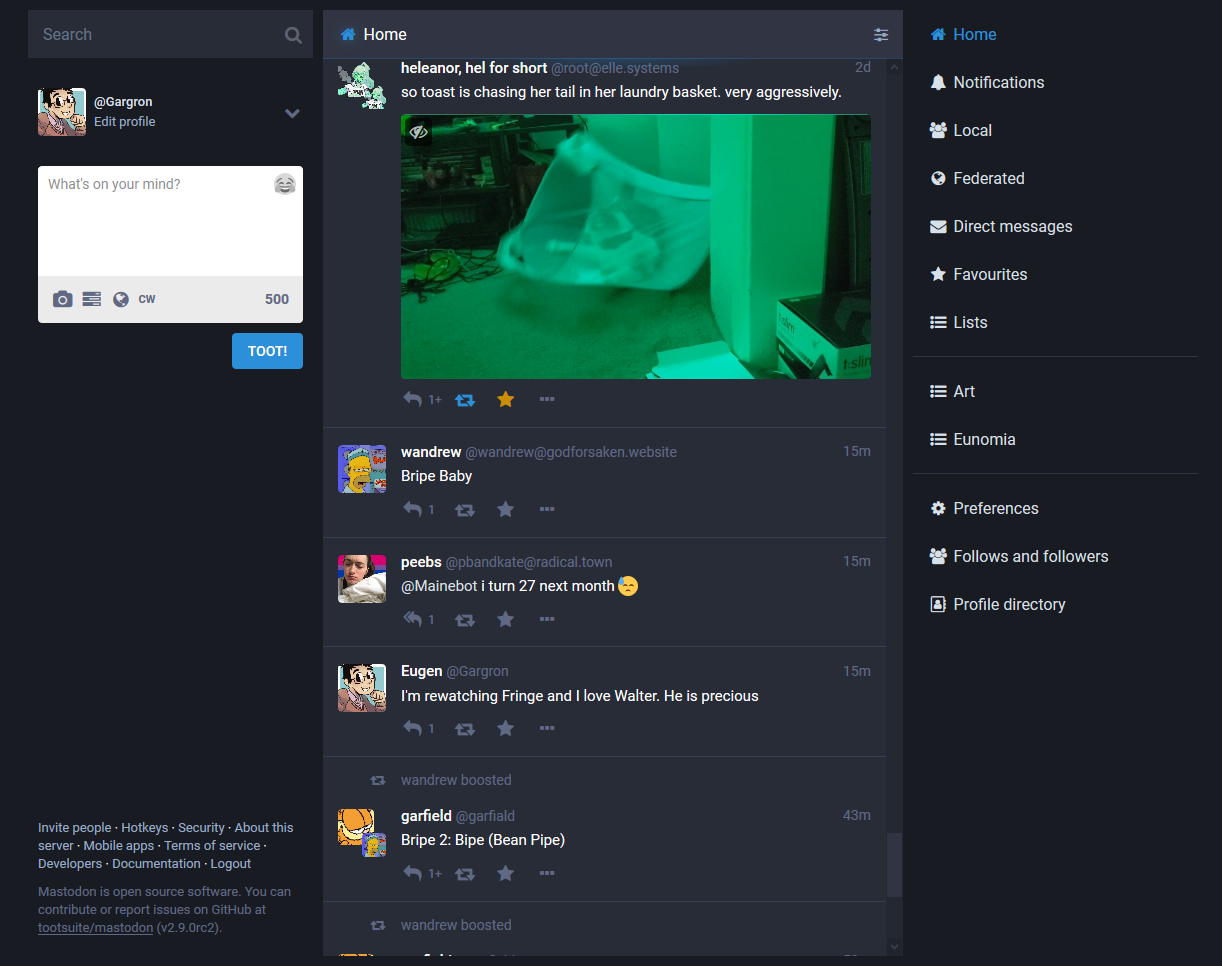Mastodon 3.0 in-depth
Detailed notes on REST API changes, new deployment options, new admin settings and how to use them

Eugen Rochko
Strategy & Product Advisor, Founder

Mastodon 3.0
In this exciting new release: Moving accounts, trending hashtags, private servers and more!
Eleanor
Guest
Gab switches to Mastodon's code
After crowdfunding millions of dollars, social media platform Gab abandoned its own code and switched to the freely available Mastodon software in early 2019 as a way of circumventing Google’s and Apple’s ban on their own app from their app stores, since offering Mastodon’s client-side API would allow any existing Mastodon app to be used to access Gab. We have never had any sympathy for their thinly (if at all) veiled white supremacist platform so that was not a welcome move on our part, however the license that we publish our software under (AGPLv3) allows anyone to use it as they see fit as long as they keep the same license and make their modifications public.

Eugen Rochko
Strategy & Product Advisor, Founder

Mastodon 2.9
The latest release of Mastodon introduces a simplified single-column interface as the new default for new users
Eleanor
Guest
How to migrate from one server to another
With the sad news that KNZK was shutting down we thought it might be useful for people to have a refresher on the features that Mastodon has built in that make moving instances easy and painless. Backing up Your Data Data export If you are moving to a new instance the first thing you will want to do is to get a backup of all of your data. Thankfully this process is painless with the Data Export tab under the “Import and Export” page. Here you can download your followers list, your muted users list and your blocked users list.
Eleanor
Guest

Introducing the Mastodon Server Covenant
To provide a safer experience to new Mastodon users, we are changing the joinmastodon.org server picker

Eugen Rochko
Strategy & Product Advisor, Founder

Improving support for adult content on Mastodon
Using the Blurhash algorithm in Mastodon 2.8.1 to generate prettier previews for sensitive media

Eugen Rochko
Strategy & Product Advisor, Founder

Mastodon 2.8
In this release: Polls, new tools for managing followers, new frontpage design, new admin features, Keybase integration, and more

Eugen Rochko
Strategy & Product Advisor, Founder
Mastodon now available on DigitalOcean
We have published a 1-click install image on DigitalOcean. This reduces the initial time investment in self-hosting Mastodon substantially. You create a new droplet, choose the Mastodon image, and once it boots up, you are taken through an interactive setup prompt. The only necessary information for the prompt is a domain name (it should already be pointing at the IP address of your droplet!) and credentials to some e-mail delivery service, like SparkPost, Mailgun, Sendgrid, or something similar. Once you enter them into the setup prompt, your brand new Mastodon server boots up, ready to go.

Eugen Rochko
Strategy & Product Advisor, Founder